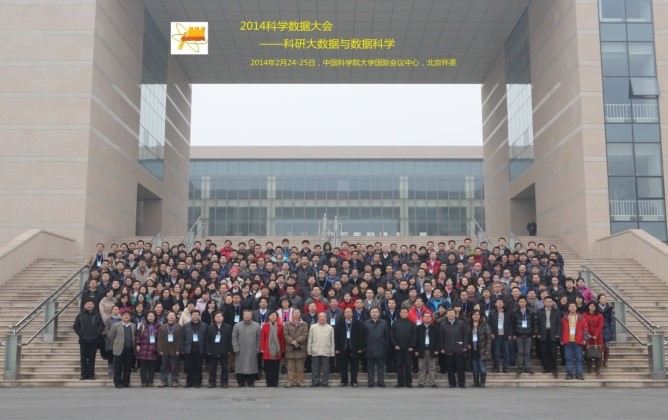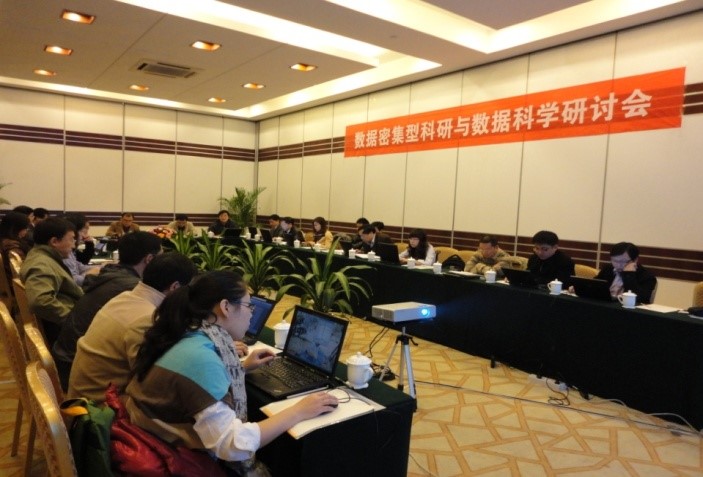1st Scientific Data Conference – Scientific Research Big Data and Data Science
Organized by CODATA-China, the 1st Scientific Data Conference – Scientific Research Big Data and Data Science, was held in Beijing, China on 24-25 February, 2014. More than 400 experts, scholars and students from over 100 units participated in this conference.
The Conference aims to catch the core of the big data era and promote multidisciplinary communication and youth talent training, to deepen the traditional research pattern reformation and to service the national innovation development strategy.
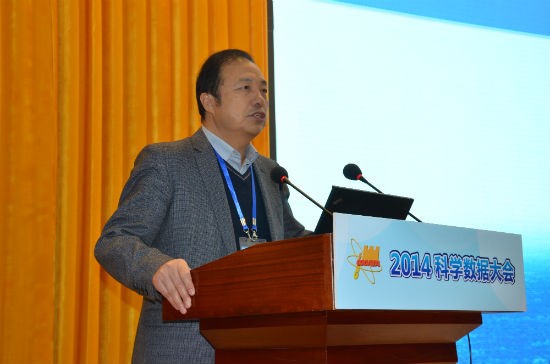
It had 2 plenary sessions and 14 breakout sessions, lasting for 2 days. There were 4 keynotes, 3 invited reports and 3 business reports in plenary sessions. The keynote lectures focused on the hot issues in this big data era, including connotation of big data, development opportunities and major challenges for science and technology, etc. And the breakout sessions include technical sessions and open forums:
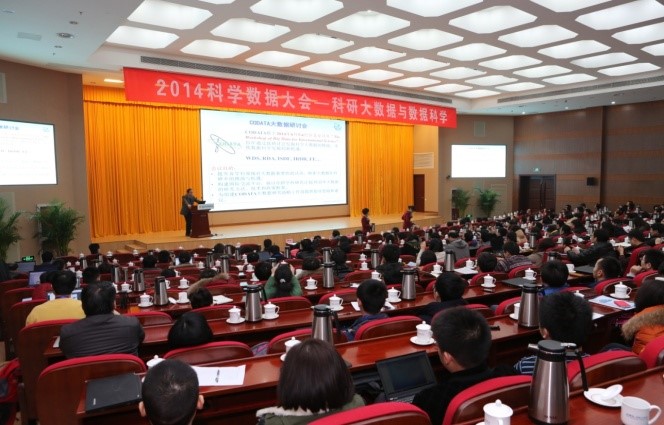
- Big data application of earth and spatial science
- Big data analysis and processing technology
- Life science and medicine data and application
- Material scientific data and application
- Big data technology and application of agriculture and rural informatization
- Linked data and information recommendation
- Scientific data visualization
- Physics and chemistry data and application
- Cloud computing and data discovery
- DOI registration and release
- Open forum: Data science and data scientist
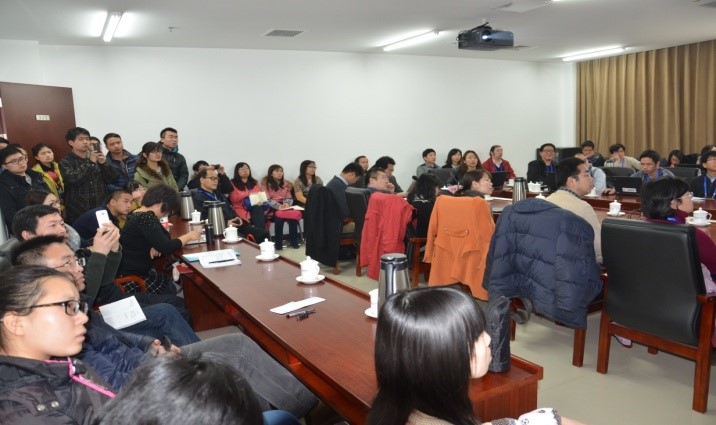
At the closing ceremony Prof. LI Jianhui, secretary-general of CODATA-China, made a concluding speech and announced the forthcoming published book Scientific Discovery in Big Data Era. The conference is one of the most successful academic activities in the past 30 years since CODATA-China was set up.
See also:
- Big Research Data and Data Science – Papers in Data Science Journal
- Great Success of CODATA-China’s First Scientific Data Conference
“Scientific Discovery in Big Data Era” was published in February 2014
After more than two years of research and discussion, Scientific Discovery in Big Data Era was published in February 2014. In order to accelerate the pace of technology innovation, to arise government to pay more attention on building scientific data environment, this book was published. 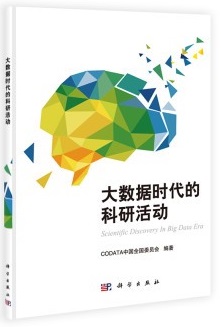
- Introduction: this part provides a comprehensive view of big data phenomenon in the field of scientific research, the connotation of data-intensive scientific research paradigm, and the challenges in big data rea.
-
Part I: Scientific Research Activity with Data as the Core.
In this part, it respectively introduces the big data phenomenon in the field of high energy physics, astronomy, space science, earth science, biology, social computing, economics and other disciplines, discusses the changes of scientific research methods, challenges and demands of technology, infrastructure, policy and law. From this part, we can get a clearer picture of the inevitable problems of big data and data-intensive scientific research now and in the future, which needs actions and responses. -
Part II: Common Technology to Support Scientific Research in Big Data Era
This part focuses on the discussion on technology development, new technology and its trends for future development in the aspects of data acquisition, data transmission, data storage and processing, data integration, data and literature interoperability, data mining and visualization technology, etc. - Part III: Data Science in Big Data Era
In this part, the article of “Development and Prospect of Data Science” presents the point that data can be studied as a natural object, and based on this point it also provides the definition and the connotation of data science, the basic framework and its relationship with natural science and social science data. The article of “Development of Data Policy” introduces the national and international data open policy, the efforts made in the area of journal publication, and discusses the challenges of data open policy.
- Part IV: Prospects and Suggestions
This part gives five suggestions and hopes to provide some reference for government in making science and technology development strategy and action plan.
Suggestion 1: Study and formulate the matched science and technology policy. Through promoting scientific research funding model, publishing scientific research achievements and evaluation mechanism, incentive mechanism of researchers and institutes, accelerating the scientific data sharing and reusing, and the principles of open science and open data can be widely accepted.
Suggestion 2: The construction of the new national scientific data infrastructure. New national scientific data infrastructure consists of a number of national scientific data centers, data archives, digital libraries, etc. It should be able to support the whole lifecycle of the scientific data, to support data-intensive research and multidisciplinary research, interdisciplinary data transfer and open linked data space, and scientific data and literature interoperability.
Suggestion 3: The core technology of big data storage, transmission, management, analysis and sharing. Some technology directions need to be focused, including the big data storage technology, big data transmission technology, data integration technology, workflow technology, unstructured and semi-structured data processing, data mining technology, large-scale data visualization technology, long-term preservation technology and so on.
Suggestion 4: Actively cultivate new talent and support the development of data science. Cultivating new talent includes data scientist, data analyst, data engineer, data administrator, data archivist, etc. They all play a key role in the success of scientific data management and usage. Building scientific research institutes and setting up data science majors and courses to promote the development of data science basic theory and data technology research and development.
Suggestion 5: Guide related disciplines to explore and use new research methods. Through application demonstration to guide researchers to explore and use data-intensive scientific research methods, speed up the transition of scientific research mode.
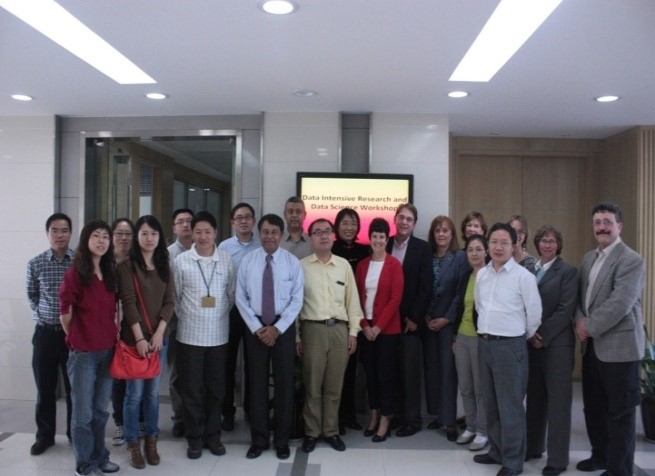
Find out more
National Committee (Expanded information)
Membership (coming soon)

